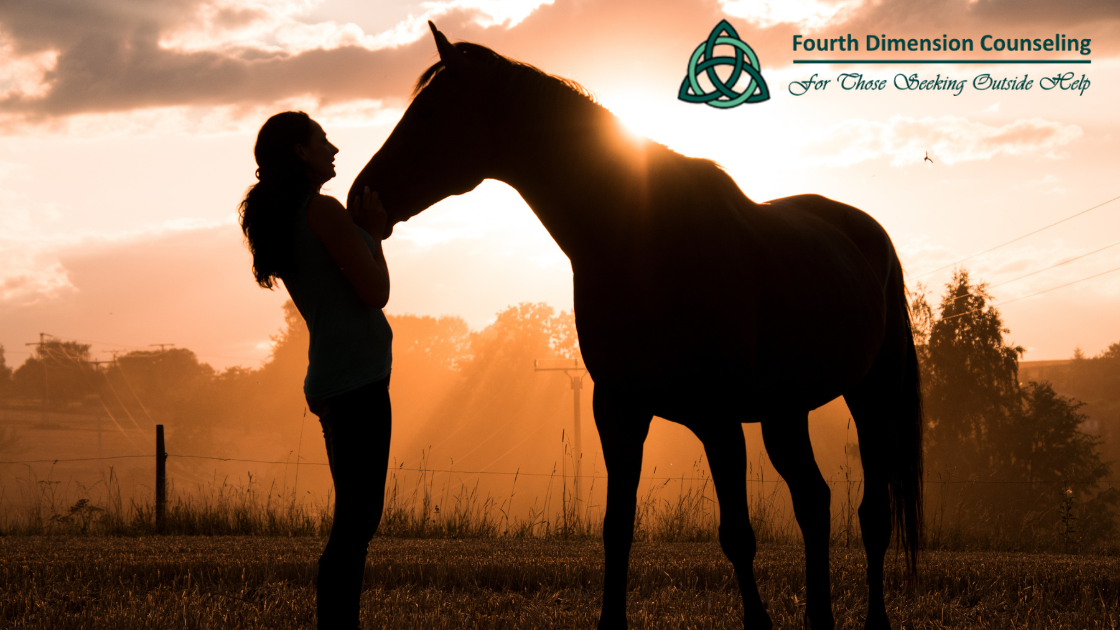
Horses are perfect for therapeutic purposes because humans have an element of trust in them, something hard to find in other animals. This article discusses how horses can be used as therapy animals in some unusual but effective ways.
In equine-assisted psychotherapy, which is also known as equestrian therapy or horse therapy, a patient interacts with horses as part of their treatment for mental health issues. People of all ages have benefited from equine therapy, which has been found to address both the physical and psychological aspects of a diagnosis.
Both an equine psychotherapist and an experienced horse trainer are often involved in the treatment process of those in need of aid.
What Are The Benefits Of Equestrian Therapy?
Equestrian therapy has been demonstrated to benefit people of all ages in studies, and horses have been used to treat a wide range of conditions, including but not limited to:
- Parkinson’s disease
- Hyperactivity and inability to concentrate Symptoms of inattention (ADHD)
- Illnesses related to alcoholism and drug misuse.
- Rapid mood swings
- Autism
- Asperger’s
- Challenge learning
- Eating disorder
- Loss and mourning
- Post-traumatic stress disorder (PTSD)
- Bipolar
- Depression
- Anxiety
Equine therapy can help children and teens with cerebral palsy with physical challenges such behavioral tics, motor control issues, balance, posture, and coordination. Other times, working with horses improves cognitive abilities, reduces stress, eased symptoms of post-traumatic stress disorder, and dealt with depressive symptoms. Equine therapy has even been demonstrated to help some people break destructive patterns of behavior or relationships that put their health and safety at risk.
Psychological distress was reduced and psychological well-being was increased in participants of an experiential equine-aided therapy program. A six-month follow-up showed that these favorable effects had persisted.
What Is The Process Of Using Horses for Therapy?
Horse training and psychotherapy are commonly used in conjunction with equine therapy to treat mental health difficulties. A horse’s capacity to bear a considerable degree of distraction and tolerate chaotic behavior from persons riding or grooming them is a factor in the selection of these animals as therapy animals. Many of them have been taught to be extra gentle and do the same things over and over again to make people more comfortable around them and make their interactions with people more predictable.
There are equine therapy programs available at certain residential treatment facilities, while others are arranged between the patient and a psychologist. Those who are new to equine therapy should begin by touching, grooming, and feeding the horse. When they’re ready, they can either work with a trainer or go it alone to get the horse used to being halter-trained. Some equine therapies may not involve horseback riding, yet this is a common thread throughout the field.
Equestrian psychotherapy has been credited in part to the horse’s ability to recognize human emotional displays and demands. Nonjudgmental mirroring of human emotions is possible because horses are extremely patient, sensitive and responsive to the expressions of fear, rage, agitation, and despair. Self-awareness and emotional healing often occur as a result of the therapeutic relationship formed between the client and the horse.
[button link=”https://fourthdimensioncounseling.com/contact-seattle-tacoma-kirkland-wa/” type=”big” color=”silver”] Schedule a Consultation Today[/button]
More Advice:
- Do I Need to See a Counselor for Love Addiction?
- Simple Ways to Reduce Stress
- Sex Victims Can Experience PTSD
- Emotions and How to Process Them
- Sex Addiction Counseling
- How Do I Know it’s Time to Get professional Counseling?
- How to Heal from Betrayal Trauma
- What is PTSD?
- The Mental Health Effects of Sexual Abuse
- The 4 Types of Intimacy
- 5 Ways to Reduce Stress
- What is Co-Dependency?
- How Same-Sex Couples Counseling is Different
- How to Know it’s Time to Get Mental Help
- How to Find a Great Relationship Counselor
- What if I Can’t Get in to See a Counselor?
